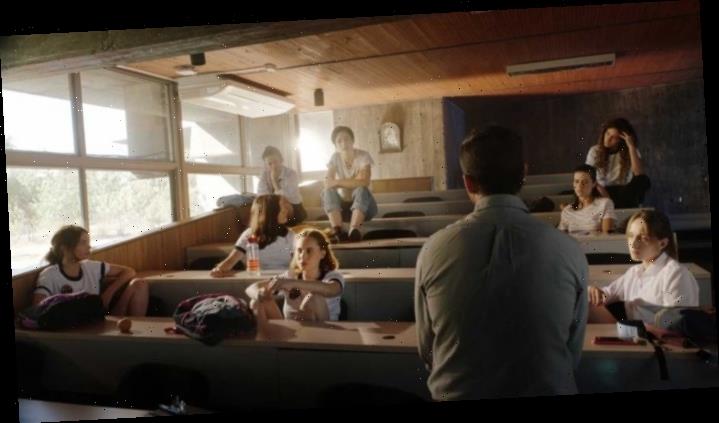For 25 years, from 1992’s “La Frontera” through 2017’s ”A Fantastic Woman,” a subsequent Oscar winner, the Berlinale has prized a rich trove of Chilean movies.
Now, in sync with industry change, Berlin will celebrate the country’s TV with a Chilean Series on the Rise showcase, part of its Country Focus.
“When I started at CinemaChile, one mandate was to achieve the same sense of a phenomenon for Chilean series that had happened in film,” says Constanza Arena, executive director.
Berlin lifts the curtain on early success. “TV is the future of content,” says Matías Cardone, producer of “Dignity,” as the showcase comes in as a Country Focus’ centerpiece.
The five series presented have won big prizes, struck high-profile deals and helped bow original series investment and marked a major strategic departure at some of the world’s most energetic drama series players.
Haunting vignettes of desaparecidos under Pinochet and the impact of their murder on loved ones, Hernán Caffieri’s “The Suspended Mourning” won a 2018 short series Intl. Emmy. A wrenching gender crime thriller, “La Jauría” (“The Pack”) is the first title in a multiyear first-look deal between Chile’s Fabula and Fremantle. “Dignity,” a thriller about the hunt for a former Nazi, is the first original series order at Germany’s Joyn, a Discovery-ProSiebenSat1 joint venture.
“Berko, the Weapons of Pinochet” continues a cornerstone relationship between Fox Networks Group Latin America and Chile’s Acuña, who made its first original, “Sitiados,” in 2015.
The five series also bid fare to have buyers and critics talking up a New Chilean TV. Common traits abound. Many series are driven by illustrious cineastes. “Dignity” is produced by Andrés Wood (“Violeta Went to Heaven”), “La Jauría” showrun by Lucía Puenzo (“The German Doctor”) co-directed by Marialy Rivas (“Young & Wild”) and produced by Pablo and Juan de Díos Larrain (“A Fantastic Woman”). Titles indeed draw on a far larger talent pool.
“We have a prosperous literary tradition, as in theater and cinema,” says Angela Poblete, “Convoking these writers, playwrights, directors and actors to explore the world of television, the results can be beautiful and make for premium quality entertainment.”
“These series have a cinematographic language, technical aspects are more cared for, and the stories more complex, and made for a public which is more willing to see stories with a complexity in their characters as well,” says “Invisible Heroes’”producer Leonora González, at Parox.
All the shows are co-financed abroad. There’s little other option. Chile’s too small a market with mass audience networks who cannot bear the cost of high-end production.

“Premium series require high production values. We have series production incentives in Chile but to make those we dream about, we require the help of international partners,” says “Invisible Heroes” producer Sergio Gándara, at Parox.
Increasingly, the series will be made with platforms. Scoring a global rights sale to Amazon Prime Video on just-announced adaptation of Gabriel García Márquez’s non-fiction book “News of a Kidnapping,” Invercine & Wood has begun to produce for OTTs, says Cardone. More OTT deals look likely to follow. That will mean series which are sometimes distinguished by their scale. Already Amazon has taken Spain, the U.S., and Latin America (except Chile) on “Inés of My Soul.”
The series are made by producers who will continue to mix drama series and movie. Their auteurist talent, which they need to retain, often feels a vocational necessity to make movies. Also, the aura which cinema gives directors – the international recognition of festival prizes – is an asset that can can bulwark producers’ revenue share, Arena observes.
The filmmakers now creating premium series in Chile have brought with them the traditional social concerns of much Chilean cinema, Gándara observes.
New Chilean TV is “fiction nourished by reality. Exported series such as ‘Ramona,’ ‘Mary & Mike,’ ‘La Jauría,’ ‘Invisible Heroes,” Dignity’ offer “a permanent re-reading of our processes and events which have marked us and don’t appear in official history,” says “Dignity” creator María Elena Wood, at Invercine & Wood.
These events, however, gain a universal reach, most often achieved through characterization.. Inspired by Finnish diplomat Tapani Brotherus’ rescue of thousands of Chileans after Pinochet’s coup, a singular true story which gives it novelty, “Invisible Heroes” is “seen through the eyes of Brotherus, a character who’s completely normal, so many people can identify,” says González.
That doesn’t make Chilean TV series overly academic, however, “Everything that we’re doing in Latin America is, I think, both commercial, and has something to say about really big ideas.” says Fremantle Christian Vesper.
“The series drink from reality but are wrapped in entertaining dynamic formats that invite viewers to become interested in stories from such a distant and singular country,” says Fabula’s director of TV, Angela Poblete.
So “Dignity” details another society’s complicity – not Germany’s but Chile’s – in Nazi perversion. But it is also “a powerful thriller with a deeply affected family at its core,” says writer Andreas Gutzeit. Sparked by a girl’s going missing at a posh high school, “La Jauría” is also an edge-of-the seat thriller.
It’s this sweet spot – dramas that say something but are accessible to broader audiences, in geographic and demographic terms – which may prove the winning characteristic of New Chilean TV.

Source: Read Full Article
